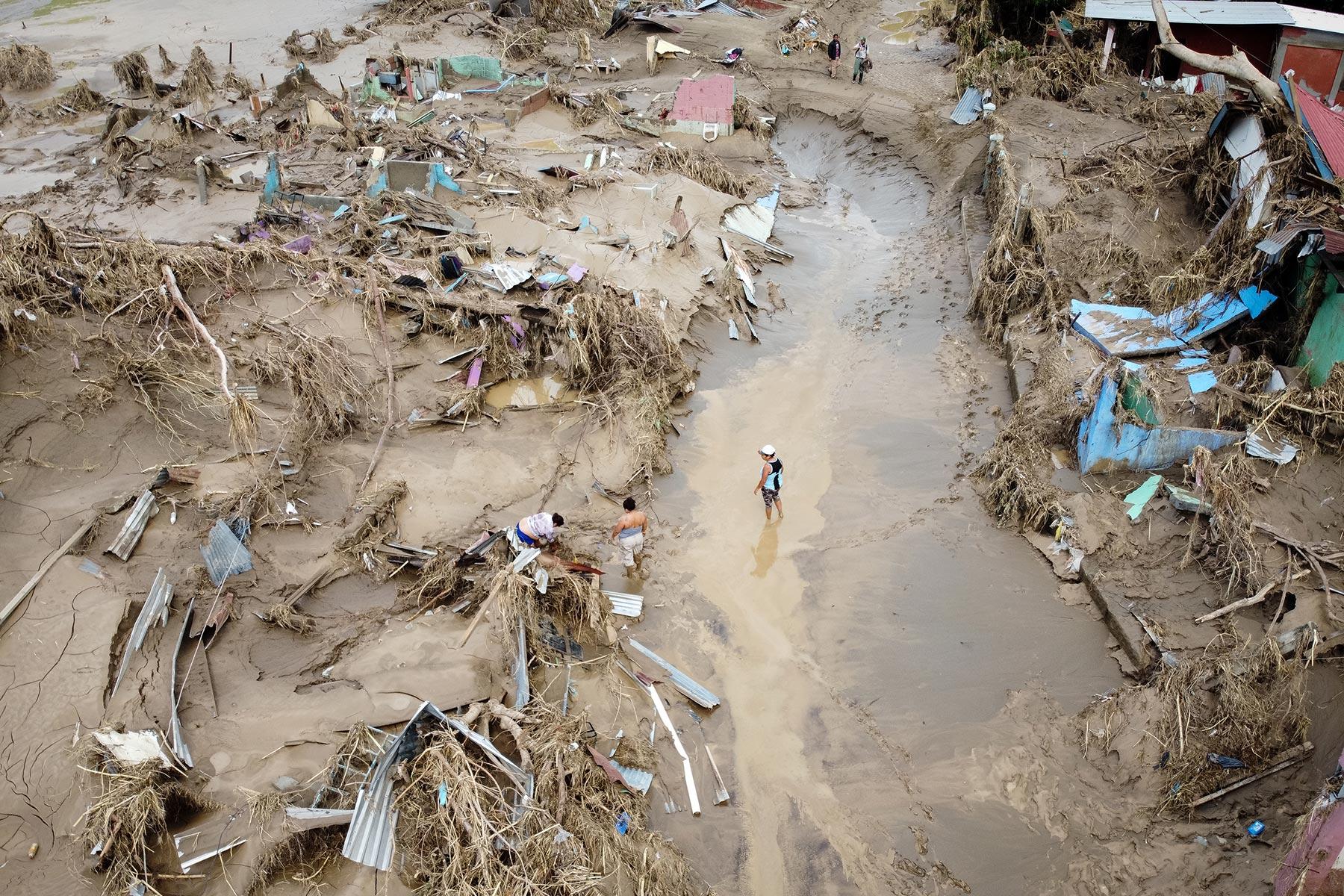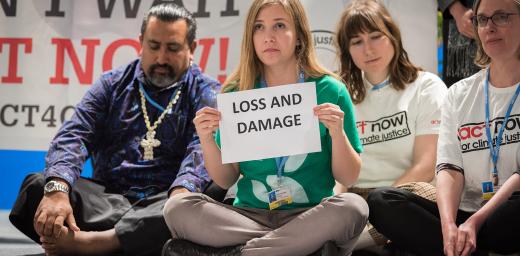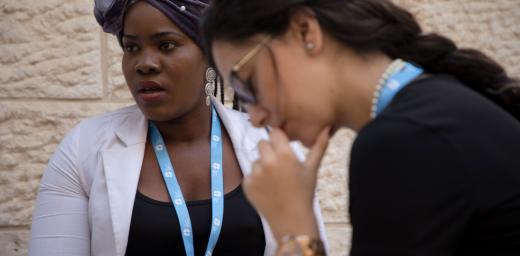LWF calls for recognition of human right to safe, clean, sustainable environment

In Honduras, Chamelecón, San Pedro Sula, the hurricanes Eta and Iota recently caused destruction to housing and infrastructure which will take years to recover - one example for the disastrous effects of climate change on vulnerable communities. Photo: Sean Hawkey / Life on Earth
Three statements on climate justice presented at 46th Session of Human Rights Council
(LWI) - At the 46th Session of the UN Human Rights Council, The Lutheran World Federation (LWF) has called for the legal recognition of the human right to a safe, clean, healthy, and sustainable environment. It has also called for the appointment of a specialized expert on human rights and climate justice.
Recognizing the right to live in a safe, clean, healthy, and sustainable environment
To date, living in a safe, clean, healthy, and sustainable environment has not been recognized as a human right by all countries.
“Conserving each living thing and the ecosystems is critical to maintaining the intricate and evolving balance of creation,” said the statement, which was delivered on behalf of LWF by Elena Cedillo, LWF’s Program Executive for Climate Justice.
“As a faith-based organization rooted in local communities, we recognize that this loss threatens the delicate balance of the earth and puts all life at risk,” the statement added. The effects of COVID-19, the climate, nature, and pollution crises continue to jeopardize human rights, especially of vulnerable groups – refugees, internally displaced persons, people with disabilities, and indigenous peoples. To address this situation, LWF has called for “the right to live in a safe, clean, healthy, and sustainable environment” to be recognized as a human right for all.
A joint written statement submitted by the LWF and partner organizations of the Geneva Interfaith Forum (GIF) reiterated this call: “It is time to recognize the right to a safe, clean, healthy and sustainable environment for all, and the Human Rights Council should be the frontrunner of this global recognition as this is also crucial to achieving the UN Sustainable Development Goals towards 2030.”
“As faith groups, we express deep concern over the suffering of both people and Mother Earth as a result of the intertwined climate and global health emergencies,” the statement reads.
The interfaith forum called on the Human Rights Council “to address the climate crisis in a more permanent, wide and sustained manner, to protect people from its adverse impacts, promote the respect for and protection of human rights in all climate responses, and ensure access to justice and empowerment.”
Investigations on human rights and climate change needed
In a joint oral statement submitted by GIF, the LWF supported the call to appoint a specialized expert on human rights and climate justice with a so-called special procedures mandate. This would open the possibility to review, report, and advise the Human Rights Council on human rights from the thematic perspective of climate change.
LWF urged the Human Rights Council “to consider the establishment of this new mandate during the 47th Session of the Council in June.”
“Resolutely adopting a human rights-based approach is key to secure the respect for the dignity of life, particularly of those who are already in vulnerable situations and feel more acutely the impacts of these multifaceted crises,” the statement argued.
A new Special Procedures mandate “would ensure a long-term focus on climate change issues at the Human Rights Council and bring a human rights dimension into climate change policies,” the statement argued. “It would contribute to enhancing complementarity between the climate change legal framework and the international human rights regime.”
Independent human rights monitoring bodies could then play a valuable and more important role. Moreover, creating a new mandate would powerfully convey that human rights must be integral to climate change discussions, the statement said.
By LWF/A. Weyermüller





